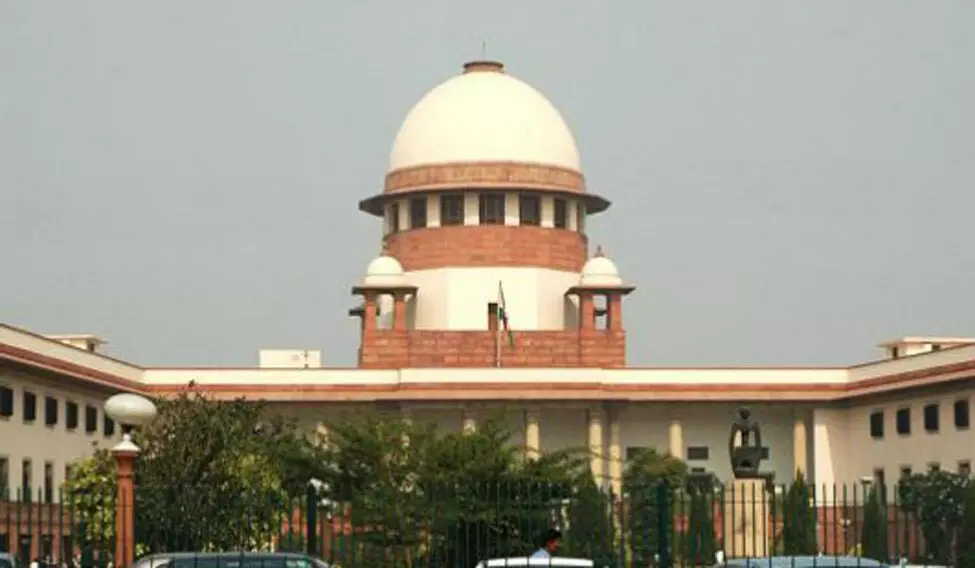Living wills: SC eases procedure to make it workable

New Delhi: Taking note of the “insurmountable obstacles” in the implementation of advance medical directives for terminally-ill patients, the Supreme Court has eased the procedure to make it more workable.
A living will is an advance medical directive on end-of-life treatment.
The Supreme Court’s 2018 order on passive euthanasia, wherein it recognised the right to die with dignity as a fundamental right and an aspect of Article 21 (right to life) of the Constitution, notwithstanding, people wanting to get a “living will” registered were facing problems due to cumbersome guidelines, prompting a reconsideration by the apex court.
Issuing a slew of modifications, a five-judge Constitution bench, headed by Justice KM Joseph, has made the role of doctors and hospitals more important in the mechanism.
The court has said the difficulties being encountered have been voiced by a large number of doctors and it has become absolutely necessary for the apex court to revisit its directions.
The court said a living will now be signed by the executor in the presence of two attesting witnesses, preferably independent, and attested before a notary or gazetted officer.
“It should specify the name of a guardian(s) or close relative(s) who, in the event of the executor becoming incapable of taking decisions at the relevant time, will be authorised to give consent to refuse or withdraw medical treatment in a manner consistent with the advance directive.
“The document should be signed by the executor in the presence of two attesting witnesses, preferably independent, and attested before a notary or gazetted officer,” the bench, also comprising Justices Ajay Rastogi, Aniruddha Bose, Hrishikesh Roy and CT Ravikumar, said.
The witnesses and the notary or the gazetted officer shall record their satisfaction that the document has been executed voluntarily and without any coercion or inducement or compulsion and with a full understanding of all the relevant information and consequences, it added.
According to the top court’s 2018 order, a living will was needed to be signed by the person making it, in the presence of two witnesses and a judicial magistrate of first class (JMFC).
The top court also agreed to the suggestion that the executor shall inform and hand over a copy of the advance directive, if any, to the family physician.
The executor may also choose to incorporate the advance directive as a part of the digital health records, if any, it said.
The court also okayed the suggestion that in the event of the executor becoming terminally ill and undergoing prolonged medical treatment with no hope of recovery, the treating physician, when made aware of the advance directive, shall ascertain the genuineness and authenticity of the document.
“The hospital where the executor has been admitted for medical treatment shall then constitute a primary medical board consisting of the treating physician and at least two subject experts of the concerned speciality with at least five years’ experience, who, in turn, shall visit the patient in the presence of his guardian/close relative.
“They shall form an opinion, preferably within 48 hours of the case being referred to it, whether to certify or not to certify carrying out the instructions’ withdrawal or refusal of further medical treatment. This decision shall be regarded as a preliminary opinion,” the bench said.
The court further said if the primary medical board certifies that the instructions contained in the advance directive ought to be carried out, the hospital shall immediately constitute a secondary medical board.
The secondary board would comprise a registered medical practitioner nominated by the chief medical officer of the district and at least two subject experts with at least five years’ experience in the speciality concerned, who were not part of the primary medical board.
“They shall visit the hospital where the patient is admitted and if they concur with the initial decision of the primary medical board of the hospital, they may endorse the certificate to carry out the instructions given in the advance directive. The secondary medical board shall provide its opinion, preferably within 48 hours of the case being referred to it,” it said.
The top court had earlier chastised the Union government for not enacting a law on passive euthanasia as laid down in its 2018 judgment, saying it was abdicating its legislative responsibility and passing the buck to the judiciary.



